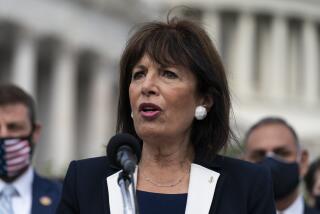Sharing the wealthiness
Hillary Clinton is out of money. She recently loaned $5 million to her own campaign just as Barack Obama was setting records by raising $32 million in January. As the two of them race ahead, winning the money game now is more important than ever. But where can she turn? Two words: Stephen Colbert.
In character, Colbert claims that anyone who comes on his Comedy Central show, “The Colbert Report,” receives a boost in popularity that immediately vaults the guest to stardom, fame and fortune. Fans have pointed to several pieces of evidence that the “Colbert bump” is real. Colbert helped former Orleans singer John Hall win his seat in Congress. Ned Lamont came on the show and then promptly beat Sen. Joe Lieberman in the Connecticut primary. And in this year’s presidential race, popular support for Ron Paul doubled and for Mike Huckabee tripled immediately after they appeared on the show (never mind that they both started at a paltry 1%). At that rate of increase, Colbert quipped, Huckabee could be the first candidate ever to win 88,128,000% of the vote.
But these efforts to measure Colbert’s influence don’t even qualify as “truthy.” For example, one method involved averaging the percentage of the vote earned by each candidate who had appeared on the show. Because 89% of them were incumbents (several running unopposed), it is hardly surprising that they beat their opponents by 34 percentage points on average.
Such amateur statistics fall prey to the problem of self-selection -- candidates with secure seats may be much more likely than others to risk televised humiliation. Just ask Georgia Republican Rep. Lynn A. Westmoreland, who advocates putting the Ten Commandments on the walls of Congress -- he could only name three of them on the show -- or Florida Democrat Rep. Robert Wexler, whom Colbert goaded into saying he liked cocaine and prostitutes “because it’s a fun thing to do.” Both were incumbents facing no serious competition.
But it is possible to control for the self-selection problem by also examining similar candidates to those who went on “The Colbert Report.” So that’s exactly what I did in my study. I matched Republicans to other Republicans, incumbents to other incumbents, and so on. (Colbert might call his guests the “Hall of Heroes” and the similar-looking “control” group that didn’t go on the show the “Hall of Cowards.”) I then used data from the Federal Election Commission to see whether being on the show had an effect on campaign contributions.
So what did I find? As it turns out, the Republican candidates who appear on the show don’t fare any better -- if anything they might actually do a little worse than their fellow Republicans who stayed home. However, Democratic candidates who appear on “The Report” receive 44% more money than those who do not in the first month after their appearance. We no longer have to rely on the gut or Wikipedia -- the evidence speaks for itself.
House Speaker Nancy Pelosi said she wouldn’t recommend anyone go on “The Colbert Report,” but these results show that Democrats who ignored her advice probably did themselves a favor. For Democrats, the “Colbert bump” is financially measurable, and it may be just what they need to keep control of the Congress in 2008.
And for Clinton, who now more than ever appears to need the money, calling Colbert just might be the smartest move of her campaign.
More to Read
Get the L.A. Times Politics newsletter
Deeply reported insights into legislation, politics and policy from Sacramento, Washington and beyond. In your inbox three times per week.
You may occasionally receive promotional content from the Los Angeles Times.






